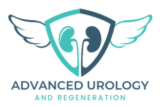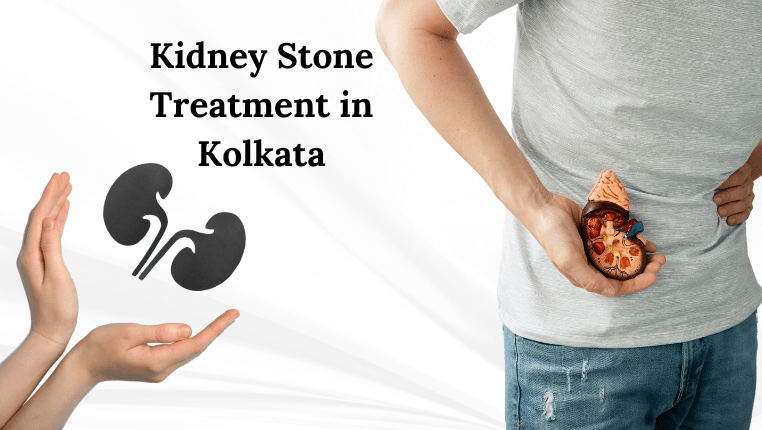Are you experiencing sharp pains in your back or side that just won’t quit? You might be dealing with kidney stones – those pesky mineral deposits that can wreak havoc on your urinary tract. But fear not, because in this blog post, we’re going to unravel the mystery of kidney stones. From their causes and symptoms to non-surgical treatment options and dietary tips, we’ve got you covered. So sit back, relax, and let’s dive into the world of kidney stones together!
Understanding Kidney Stones: Causes and Symptoms
Kidney stones are like unwelcome guests that can show up unannounced in your urinary tract. These small, hard deposits form when certain substances in your urine crystallize and stick together. The most common types of kidney stones include calcium stones, uric acid stones, struvite stones, and cystine stones.
Causes of kidney stones vary from dehydration to certain medical conditions that affect how your body processes minerals and salts. Symptoms can range from intense pain in the back or side to nausea, vomiting, and blood in the urine.
If you suspect you have kidney stones based on these symptoms, it’s essential to consult a healthcare professional for an accurate diagnosis and appropriate treatment plan tailored to your specific situation.
Types of Kidney Stones
Kidney stones come in different types, each with its own distinct composition. The most common type is calcium stones, which are formed from calcium oxalate or calcium phosphate. These stones can be caused by high levels of calcium and oxalate in the urine.
Another type is uric acid stones, which form when there is too much acid in the urine. Struvite stones are often associated with urinary tract infections and can grow quickly to become quite large. Cystine stones are rare but occur in people with a hereditary disorder that causes their kidneys to excrete too much cystine.
There are also other less common types like brushite and xanthine stones. Understanding the specific type of kidney stone you have is essential for determining the best course of treatment and prevention strategies tailored to your unique situation.
The Cost of Kidney Stone Treatment
Navigating the world of kidney stone treatment can be overwhelming, especially when considering the costs involved. The expenses associated with treating kidney stones can vary depending on factors like the type of procedure needed, healthcare provider fees, and whether you have insurance coverage.
Costs may include imaging tests to diagnose the stones, medications for pain management or to help break down the stones, as well as procedures such as lithotripsy or surgical removal. It’s essential to consult with your healthcare provider and insurance company to understand what costs you may incur and what is covered by your plan.
While managing the financial aspects of kidney stone treatment can be challenging, prioritizing your health should always come first. Be proactive in discussing payment options with your healthcare team and seek resources that may offer financial assistance if needed. Remember, investing in your health now can lead to long-term benefits and improved quality of life.
Non-Surgical Options for Treating Kidney Stones
When it comes to treating kidney stones, surgery is not always the only option on the table. Non-surgical approaches can be effective in breaking down and passing these painful deposits. One common non-surgical method is Extracorporeal Shock Wave Lithotripsy (ESWL), which uses shock waves to break up larger stones into smaller pieces that can be passed more easily.
Another non-invasive technique is ureteroscopy, where a thin scope is inserted through the urinary tract to locate and remove smaller stones. This procedure typically does not require any incisions and has a quick recovery time compared to traditional surgery.
For certain types of kidney stones, medications like potassium citrate or allopurinol may help prevent their formation or aid in dissolving them. It’s important to consult with a specialist at Kumar Kidney And Hypertension Clinic like Dr Bivek kumar to determine the most suitable non-surgical treatment for your specific case.
Dietary Tips to Help Prevent and Treat Kidney Stones

When it comes to preventing and treating kidney stones, paying attention to your diet can play a significant role. One key tip is to stay well-hydrated by drinking plenty of water throughout the day. This helps dilute the substances in the urine that can lead to stone formation.
Reducing sodium intake is another crucial dietary step as high levels of salt can increase calcium in your urine, contributing to stone development. Opt for lower-sodium alternatives and cut back on processed foods.
Incorporating more fruits and vegetables into your meals can also be beneficial as they are rich in nutrients that help prevent kidney stones. Foods like leafy greens, berries, and citrus fruits are particularly helpful due to their high water content and low oxalate levels.
Limiting consumption of oxalate-rich foods such as spinach, rhubarb, nuts, and chocolate may also help reduce the risk of certain types of kidney stones forming. Additionally, moderation when it comes to animal protein intake from sources like red meat is advisable for those prone to developing stones.
Maintaining a balanced diet with plenty of fluids while being mindful of specific food choices can go a long way in managing kidney stone risk.
Lifestyle Changes to Reduce the Risk of Recurring Kidney Stones
Making small lifestyle changes can significantly reduce the risk of recurring kidney stones. Staying hydrated is crucial – aim to drink plenty of water throughout the day to keep your urine diluted and prevent minerals from crystallizing into stones. Cutting back on sodium can also help, as high salt intake can lead to calcium buildup in the kidneys.
Maintaining a healthy weight through regular exercise and a balanced diet is key. Obesity is linked to an increased risk of kidney stones, so focusing on portion control and choosing nutrient-rich foods is important. Limiting animal protein like red meat and seafood can also lower your chances of developing more stones.
Incorporating more fruits and vegetables into your meals not only provides essential vitamins and minerals but also boosts your intake of dietary fiber, which may help prevent stone formation. Reducing stress levels through relaxation techniques like yoga or meditation can benefit overall health and potentially decrease the risk of kidney stone recurrence.
Conclusion: Taking Control of Your Kidney Stone Journey
Kidney stones can be a painful and frustrating condition to deal with. By understanding the causes, symptoms, and treatment options available, you can take control of your kidney stone journey. Whether it’s through non-surgical methods like lithotripsy or dietary changes to prevent future occurrences, there are ways to manage this condition effectively.
Remember that prevention is key when it comes to kidney stones. Make sure to stay hydrated, watch your diet by avoiding foods high in oxalates and sodium, and consider lifestyle changes such as regular exercise. Consulting with experts like Dr Bivek Kumar at Kumar Kidney And Hypertension Clinic can provide you with personalized guidance on managing your kidney stones.
By being proactive about your health and making informed decisions, you can successfully navigate the challenges associated with kidney stones. Take charge of your well-being and work towards a future free from the pain and discomfort caused by these pesky little crystals. Your kidneys will thank you for it!

